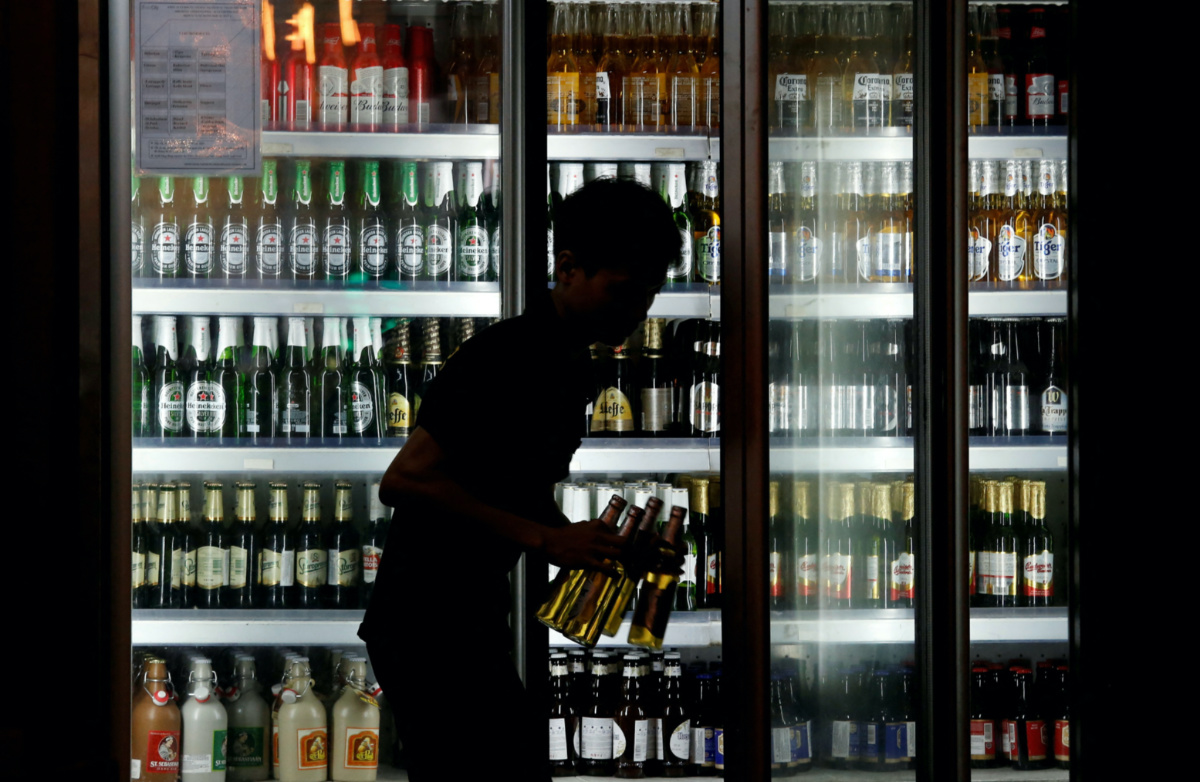London, UK
Reuters
The World Health Organization on Friday urged governments to consider gender when developing their alcohol policies, warning that industry marketing increasingly targeted women who face greater health risks than men from lower levels of drinking.
The Geneva-based WHO said that there was good evidence that men, women and minority groups were affected differently by alcohol-related harms and that the industry tailored its marketing to target different genders.

A man takes bottles of tiger beer out of a beer fridge at a restaurant in Hanoi, Vietnam, on 9th April, 2019. PICTURE: Reuters/Kham/File photo
“Despite this … alcohol control policies remain largely gender blind,” it said, calling on governments to consider gender when devising control measures.
The industry increasingly used gendered approaches to appeal to consumers, it continued, adding it was vital to keep pace with these changing marketing tactics.
After broad successes in tackling the public health impact of other products like cigarettes, the WHO is increasingly turning its attention to addressing the harms linked to alcohol.
It pointed studies that have found the industry increasingly targets women through everything from packaging to adverts, which emphasise aspects of feminism or female friendship.
Women in Africa and India, for example, were targeted with sweetened beverages marketed as representing freedom and empowerment, studies found.
Men are also specifically targeted with alcohol marketing linked to traditional notions of masculinity and are at greater risk of drinking in high quantities, developing alcohol problems and aggressive or risky behaviour, the WHO pointed out.
But women suffer greater harms at lower levels of alcohol consumption, it continued, citing studies that found alcohol use disorders progress more quickly for women and that women endure more second-hand harm from alcohol use by partners, family members or others.
The LGBTQ+ community also faces different harms, often consuming more alcohol and having more substance use problems than cisgender and hetrosexual people, while the legacy of colonialism and economic marginalisation have also left indigenous peoples at increased risk, the WHO said.
The WHO says drinking alcohol is a causal factor in more than 200 disease and injury conditions, including some cancers, liver cirrhosis and cardiovascular diseases.






